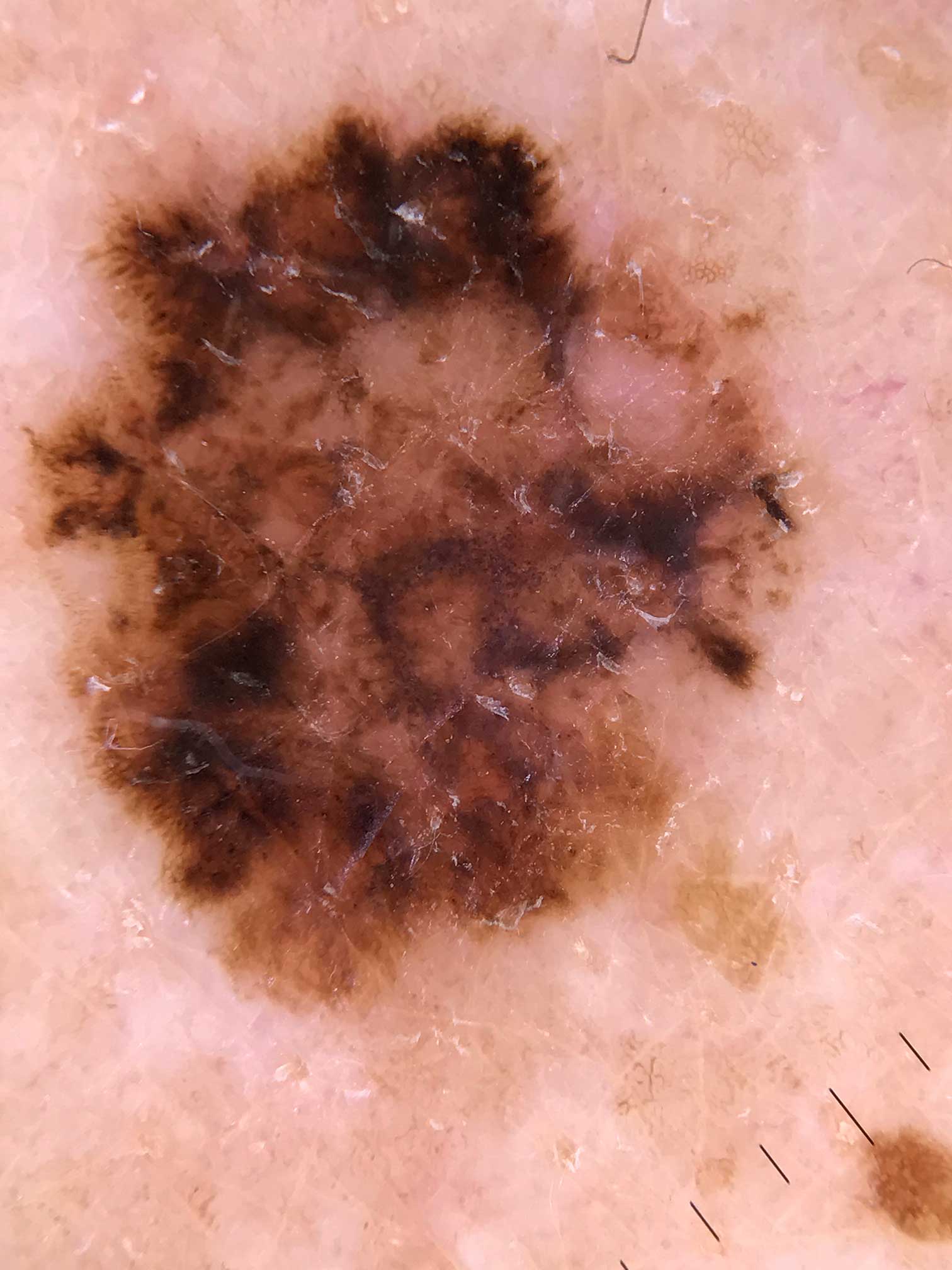WHAT IS DERMATO-ONCOLOGY?
Dermato-oncology is the branch of Dermatology that is focused on the early detection and clinical diagnosis of the various skin cancers as well pre-cancerous skin conditions. Consequently, it plays essential role in the primary and secondary prevention of the skin cancers.
Skin cancers represent abnormal growth of the skin and often associated with exposure to sun. There are several types of the main skin cancers and the most common ones are the Basal Cell Carcinoma (BCC), Squamous cell carcinoma (SCC), and Melanoma.
Actinic keratosis (AK) is the pre-cancerous condition that can evolve into Squamous Cell Carcinoma(SCC). Each skin cancer and pre-cancer are unique and can be differentiated from each other. It is important to make a distinction between each type as this will guide the further management.
MELANOMA
Melanomas are rare but aggressive type of skin cancer that can occur at almost any age. It looks like an unevenly shaped brown mole, which can have irregular borders and colors. This skin cancer can be aggressive, so early identification and treatment is key, since it has the potential of spreading to and infiltrating the internal organs.
BASAL CELL CARCINOMA (BCC)
Basal cell carcinoma (BCC) is the most common skin cancer. It typically occurs on areas of the skin that has been exposed to sun. It forms as a pink, pearly raised nodular lesion. It rarely spreads to other organs, but can turn into an unhealed wound with crusts that eventually will destroy underlying important structures of the body.
ACTINIC KERATOSIS
Actinic keratosis is a condition that is considered a premalignant condition. It is characterized by an area of the skin that is often pink, rough, and scaly. They are found on the sun exposed areas. This condition must be treated because the significant number can progress to SCC.
ACTINIC KERATOSIS
Squamous cell carcinoma (SCC) is the second most common form of skin cancer after BCC. It usually appears in sun-exposed areas as a scaly non-healing patch, plaque, or nodule. It can spread to other internal organs and; therefore, surgical treatment is warranted.
SKIN CANCER TREATMENTS
Skin cancer typically starts out as a changing mole or a new non-healing skin lesion. For the screening and the diagnosis of the skin cancer, Dermatologist often uses special tools that allow to distinguish suspicious skin lesions. One of the most accepted methods of skin diagnosis is the Dermatoscopy or Epiluminescence Microscopy that uses special magnifier with a polarized and non-polarized light for skin assessment. If the skin lesion exhibits any suspicious characteristics, then a skin biopsy is taken in order to confirm the Diagnosis. The treatment of the Skin Cancer includes following options:
CURETTAGE & CAUTERY
The skin cancer is removed with a curettage (scrapping with a special instrument – curette) and then the skin is treated with the electrosurgery (heating of the tissue with a radio-frequency) to ensure clearance from the cancer cells. This procedure is also done with a local anesthetic.
PHOTODYNAMIC THERAPY (PDT)
Pre-Cancerous and cancerous cells are more metabolically active. When special cream is applied, the affected cells absorb it more rapidly than the healthy cells do. The subsequent activation with a special light destroys the pre-cancerous and cancerous cells. PDT is used mostly for pre-cancerous lesions and superficial skin cancers.
CRYOSURGERY
Destruction of the cancerous and the pre-cancerous cells with an extreme cold temperature. The mostly common agent is the Liquid Nitrogen which has boiling temperature at -196 °C The cold is applied to the affected area via different ways such as open spray, special probe or cryochamber.
SURGERY
Removal of the skin cancer with a scalpel or special dermatological blade. Before the excision the tumor and tissue around are injected with the local anesthetic that prevents any discomfort during the procedure.

RADIATION THERAPY
Radiation therapy employs the usage of X-Ray to destroy the tumor. This method of treatment is used when other methods cannot be used due to location, size of the tumor, or contraindications to other treatment options.
